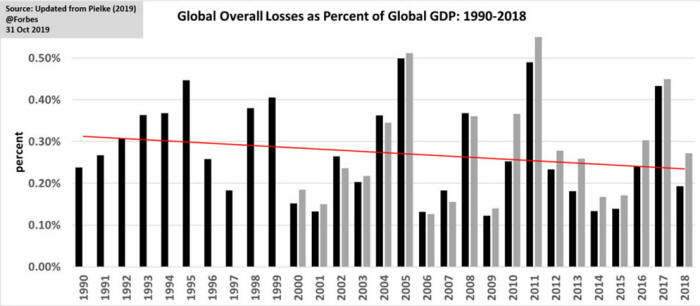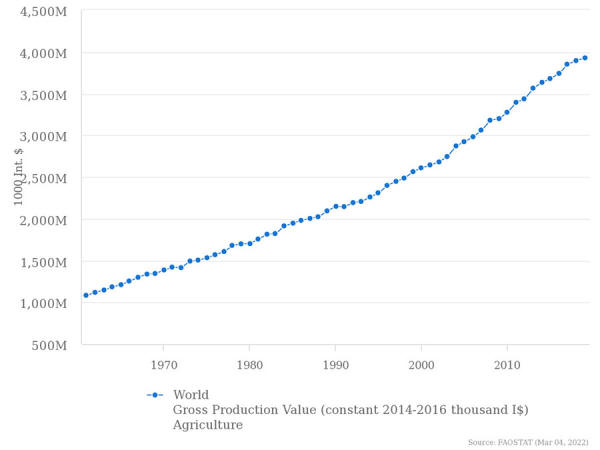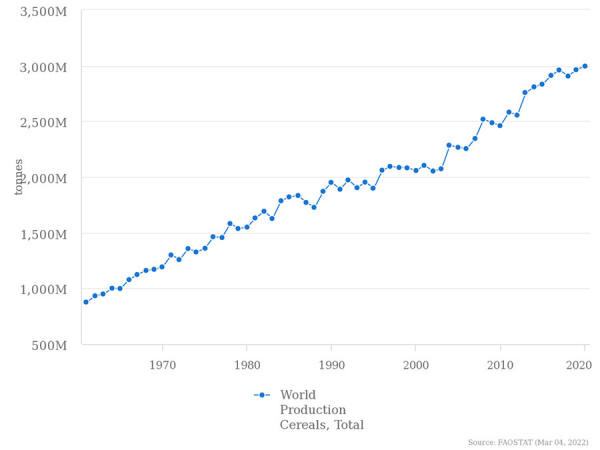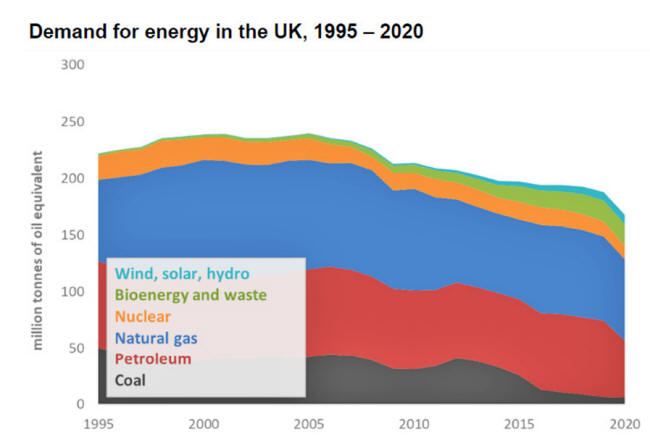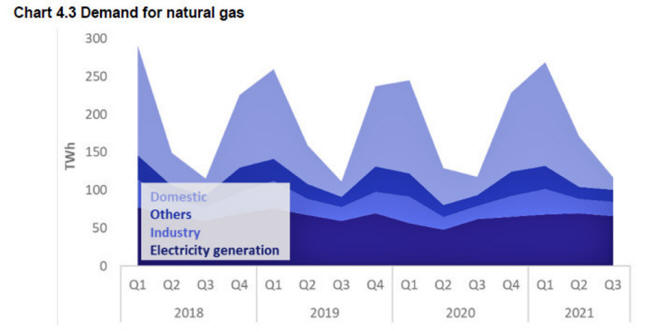|
March 11, 2022 from ConservativeWoman Website
YES, it's the latest climate report from the UN Climate Panel, the IPCC, described by the clowns at the Met Office as 'the bleakest assessment yet of climate change risk'.
Every few years since 1990, the IPCC have published their Assessment Report on climate change, and each is more scary than the one before.
This is their sixth report, hence the title 'AR6' (Sixth Assessment Report).
The first part was published last summer, dealing with the effects of global warming on the Earth's climate. TCW covered it here.
Despite much hype, it found very little evidence that our climate was any worse than in the past.
Now the IPCC have released the second part of the saga, looking at the supposed impacts of climate change on society, human health, agriculture, ecosystems and wildlife.
We are told that human-induced climate change is causing severe loss and damage to human and natural systems because of the,
Which is all very strange, given that last year's report found no evidence that this was the case!
Apparently climate change has also altered marine, terrestrial and freshwater ecosystems all around the world, including,
Climate change is also 'stressing food systems' and affecting agricultural productivity.
I don't think any sane person would recognize any of this concocted drivel.
Economic losses caused by weather events have of course increased, just as they have for every other cause.
This is not because the weather is worse, but because we all have 'more stuff' these days.
As an example,
Dr Roger Pielke Jr., of the University of Colorado, is one of the world's leading experts on the economic costs of climate change.
He has shown that losses as a proportion of global GDP have actually been falling since 1990:
Throughout the report, the IPCC deliberately conflate 'weather' with 'climate', using the phrase 'climate-induced' even though their own Part I report found no evidence that weather is more extreme now.
There are many unsupportable claims in AR6, but let's look at just one:
As the graphs below show, food production has been steadily increasing since the 1960s, both in terms of quantity and value, and stands at record levels.
This is just as true for Africa and Asia as the rest of the world.
But according to the IPCC, food output would be even greater now if it had not have been for global warming.
Of course, they have no way of knowing that:
In fact during the 1970s, after three decades of global cooling, world leaders and scientists were extremely worried about dwindling food supplies, caused by shorter growing seasons and widespread drought, both the result of global cooling.
United Nations Food & Agricultural Organisation
As with all the other IPCC reports, this is not a scientific exercise but a political one...
The content of AR6 is tightly controlled by a tiny number of Lead Authors, all ultra climate alarmists, and they ensure nothing gets into the report which is critical of their beliefs.
It only has one purpose:
Wind or gas?
The war in Ukraine has brought to a head the debate concerning the energy crisis which has been boiling up for the past few months.
Rapidly rising gas prices have divided opinion on where we should go from here.
Business Secretary Kwasi Kwarteng has told the Mail:
The choice that Kwarteng presents is a false one, as wind power and natural gas cannot be directly compared.
Oil and gas supply 74 per cent of the UK's energy consumption, whereas wind and solar contribute a tiny 4 per cent. Natural gas alone accounts for 40 per cent.
Even if we double wind capacity, it will barely make a dent in overall demand.
It gets worse...!
We currently have about 20 GW of wind power capacity, but because of its intermittency its actual output is less than 10 GW.
Clearly building more wind farms will do little to reduce our reliance on natural gas.
We can also forget about any meaningful contribution from nuclear. The new reactor at Hinkley Point will bring 3.2 GW, but this is less than the capacity which will be lost from the imminent closure of old nuclear plants.
Given the lengthy timescales involved, any extra nuclear capacity is many years away.
Department for Business, Energy & Industrial Strategy
Just like all his predecessors, Kwarteng is firmly under the control of his civil servants and other green advisers.
The government machine has now been so comprehensively infiltrated by the Green Blob that it is hard to see how the looming disaster can be avoided.
Winter is cold, Met Office reveals
Is there a point to the Met Office...?
Not only do they spend half the time trying to brainwash us with their global warming propaganda, they now seem to think we are all a bunch of simpletons.
Take this latest offering on their website.
Under the heading 'Why is winter weather a risk to our health?' it says:
Who would have guessed it?
Isn't it time the Met Office returned to its original function of forecasting the weather...?
|



